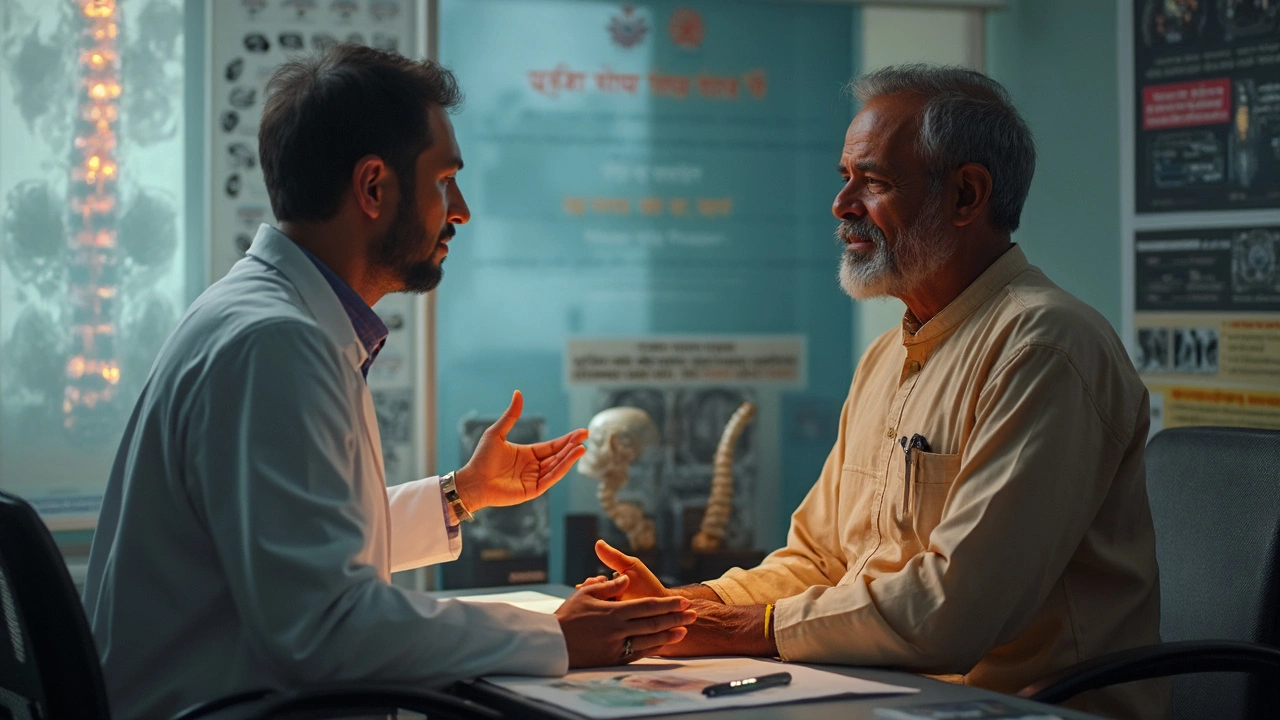Wondering who to see when your back starts acting up? This article explains what a back doctor is called, the types of specialists who treat spine problems, and when you should actually visit one. Get practical advice on how to pick the right doctor, what to expect at appointments, and why seeing a specialist makes a difference. We’ll dig into how back pain is diagnosed and treated, plus some real-world tips you’ll want if you’re facing chronic pain.
Read MoreNeurosurgeon – What They Do and How They Can Help You
If you have severe headache, back pain, numbness or sudden loss of movement, a neurosurgeon might be the doctor you need. They are doctors who specialize in the brain, spinal cord and nerves. Their main job is to find the cause of pain or loss of function and then use surgery or other treatments to fix it. In India, many hospitals have skilled neurosurgeons who work with pain‑free living plans.
When should you book a neurosurgeon appointment?
Ask for a neurosurgeon if you notice any of these signs:
- Persistent, throbbing headache that doesn’t improve with regular painkillers
- Sudden weakness in an arm or leg, or loss of feeling
- Unexplained dizziness, loss of balance, or trouble speaking
- Back pain that radiates down the leg and gets worse at night
- History of head injury with ongoing symptoms
What to expect during your first visit
When you walk into the clinic, the neurosurgeon will review your medical history and ask detailed questions about your pain – when it started, what makes it worse, and what eases it. Expect a physical exam that checks strength, reflexes and sensation. Most doctors will order an MRI or CT scan to see the exact problem. After reviewing the images, they will explain the diagnosis in plain language and discuss treatment choices, from medication and physiotherapy to minimally invasive procedures or major surgery.
Don’t be shy about asking questions. Good neurosurgeons will tell you how long recovery might take, what pain you can expect after surgery and how they will manage it. Knowing the plan helps you stay calm and prepare for the next steps.
How to choose the right neurosurgeon in India
Pick a doctor who matches these simple criteria:
- Experience with your condition: Look for years of practice and specific cases similar to yours.
- Hospital reputation: Choose a hospital that follows modern safety standards and has a dedicated neuro‑ICU.
- Patient reviews: Read real testimonials about bedside manner, pain‑control strategies and post‑op care.
- Clear communication: The doctor should explain risks, benefits and recovery steps without using medical jargon.
- Cost transparency: Ask for a detailed breakdown of surgery fees, implant costs and follow‑up visits.
Many Indian neurosurgeons also work with pain‑free living programs that combine surgery with lifestyle tweaks, yoga and dietary advice. If you value a holistic approach, ask whether they collaborate with physiotherapists or Ayurvedic practitioners.
Before finalizing, consider getting a second opinion. It’s a common practice and can give you confidence in the recommended treatment.
Tips for a smoother recovery
Recovery after brain or spine surgery isn’t a one‑size‑fit‑all process, but a few habits help most people. Start gentle stretching as soon as the doctor allows, keep a balanced diet rich in protein, stay hydrated, and follow any prescribed pain‑relief schedule. If you’re in a city with a good support system, ask a family member to help with daily chores for the first week. Regular follow‑up appointments let the neurosurgeon track healing and adjust meds if needed.
Remember, a neurosurgeon’s goal is not just to operate, but to get you back to a life with less pain and more function. With the right doctor and a clear plan, you can move forward confidently.





